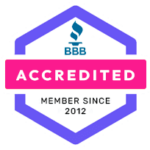How a Faster Website Can Lighten the Load for Busy Small Business Owners

Why Website Speed is a Game-Changer
As a small business owner, you wear countless hats—manager, marketer, accountant, and often customer service rep. Add family commitments or personal responsibilities into the mix, and your to-do list can feel endless. The last thing you need is a slow website creating additional stress, driving customers away, or cutting into your precious time.
A fast and efficient website isn’t just good for your business—it’s a tool that can help you reclaim your time and improve your overall productivity. This article explores why website speed matters for small business owners, how it impacts customer satisfaction and SEO, and what you can do today to make your site faster and less stressful to manage.
The Challenges of Wearing Too Many Hats
Small business owners are often stretched thin, juggling operations, marketing, customer support, and everything in between. This constant multitasking leaves little time to focus on optimizing your website, even though it plays a vital role in your business’s success.
Common frustrations with website speed:
- A slow site that causes potential customers to leave before making a purchase.
- SEO penalties for poor performance, making it harder for customers to find you.
- Time-consuming maintenance that takes you away from higher-priority tasks.
A slow website doesn’t just hurt your business—it adds unnecessary stress to your already packed schedule.
Why Website Speed Matters
Website speed has a direct impact on several critical aspects of your business:
1. Customer Satisfaction
Today’s customers expect a website to load in less than three seconds. If it doesn’t, they’re likely to abandon your site and move to a competitor.
Why this matters: A fast website creates a smoother shopping experience, increasing the likelihood of sales and repeat visits.
2. SEO Rankings
Search engines like Google prioritize websites that load quickly, especially on mobile devices. A slow website can push your business lower in search rankings, reducing visibility and customer traffic.
Why this matters: Improved SEO means more customers find your business without requiring additional advertising spend.
3. Revenue and Conversions
Research shows that even a one-second delay in page load time can result in a 7% reduction in conversions.
Why this matters: Faster sites lead to more sales and higher revenue, which translates into fewer financial stresses.
How Faster Websites Reduce Stress During Busy Seasons
The holidays or promotional periods can bring a surge of visitors to your website. But if your site is slow or crashes under the pressure, you’re not only losing sales—you’re adding to your own workload as you scramble to fix issues.
Benefits of a fast website during busy times:
- Fewer customer complaints about website issues.
- Smoother transactions, reducing the need for you to step in and troubleshoot.
- More time for you to focus on fulfilling orders and spending time with family.
Actionable Tips to Optimize Your Website Quickly
Here are simple, low-cost fixes you can implement to make your website faster:
- Compress Images: Use tools like TinyPNG or Imagify to reduce image file sizes without sacrificing quality.
- Enable Caching: Browser caching helps returning visitors load your site faster. Plugins like WP Super Cache make it easy to enable this feature.
- Minify Code: Reduce unnecessary code on your website using tools like Autoptimize or Minifier.org.
- Use a Content Delivery Network (CDN): Services like Cloudflare speed up your website by storing your content across global servers.
Pro Tip: Test your website’s speed with tools like Google PageSpeed Insights or GTmetrix to identify problem areas and prioritize improvements.
Why Outsourcing Website Optimization Saves Time and Effort
If optimizing your website sounds overwhelming or too time-consuming, consider outsourcing the work. Experts can handle the technical fixes, allowing you to focus on what you do best—running your business.
Benefits of outsourcing:
- Saves hours of trial and error trying to fix website issues yourself.
- Ensures high-quality improvements that you can rely on.
- Frees you up to spend time on higher-value tasks, like customer engagement or strategic planning.
Outsourcing doesn’t mean losing control. Many website optimization services offer clear, transparent communication, so you know exactly what’s being done and how it will help your business.
Conclusion: A Faster Website, A Simpler Life
A fast website is more than a technical upgrade—it’s a way to simplify your workload and make life easier as a small business owner. By improving your site’s speed, you can create a better experience for your customers, boost your SEO rankings, and reduce the stress of managing an underperforming website.
Start small: Compress your images, enable caching, or test out a CDN. If time is tight, outsourcing website optimization can help you achieve the same results without adding to your to-do list.
📞 Need Help? Call us at 631-637-2772 or email us at success@heartcoregrowth.com to learn how we can handle your website optimization while you focus on growing your business.
People Also Ask
- Q: How does website speed affect small businesses?
A: Website speed impacts customer satisfaction, SEO rankings, and conversions, all of which are crucial for business growth. - Q: What tools can I use to test website speed?
A: Tools like Google PageSpeed Insights, GTmetrix, and Pingdom help analyze your site’s performance and suggest improvements. - Q: Is website optimization expensive?
A: Many optimizations, like image compression and caching, are low-cost or free. Outsourcing can be cost-effective if time is a concern. - Q: What is a CDN, and why should I use one?
A: A CDN distributes your website’s content globally, improving speed and reliability for users worldwide.









